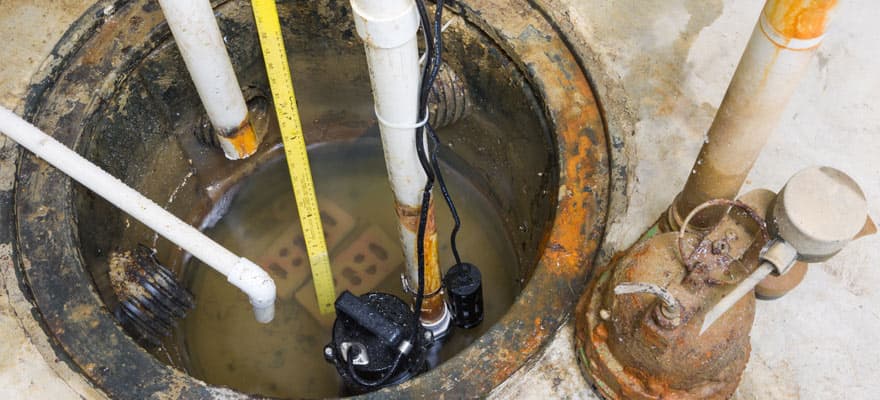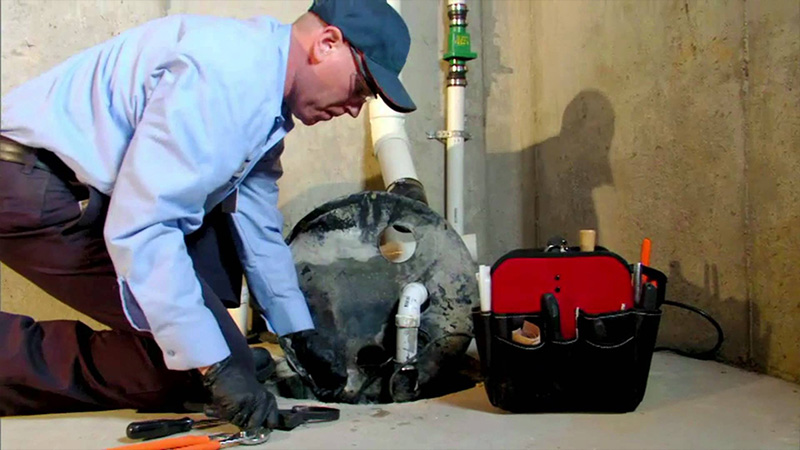Easy Well Pump Replacement: Rejuvenating Your Water Infrastructure with Self-confidence
Understanding the Key Components of Effective Water Filtration Systems

Relevance of Water Filtering Solution
Water filtration systems play a vital role in making certain accessibility to clean and secure alcohol consumption water by successfully removing contaminants and pollutants. These systems are important in dealing with the expanding problems over water quality and the potential wellness dangers related to taking in contaminated water. By using various filtration mechanisms such as reverse osmosis, turned on carbon, and UV sanitation, water filtration systems can efficiently eliminate hazardous substances like microorganisms, infections, heavy metals, and chemicals from the water supply.
Furthermore, water purification systems help to boost the preference and odor of water by eliminating chlorine, sediments, and other toxins that can affect its top quality. Well Pump Replacement. This enhancement in water high quality not just makes it more tasty yet also motivates people to drink a sufficient quantity of water daily, advertising better hydration and general wellness
Sorts Of Filtering Parts

Physical filters are designed to physically strain out pollutants from the water. These filters can be constructed from products like ceramic, carbon, and even sand, and they work by trapping fragments larger than the filter's pores as water passes with.
Chemical filters use different chemical procedures to eliminate impurities from the water. Instances consist of activated carbon filters, which adsorb contaminations, and reverse osmosis membranes, which use pressure to different pollutants from the water.
Organic filters make use of living microorganisms like algae or bacteria to damage down raw material and contaminants in the water. These filters are often utilized in wastewater treatment plants or natural water purification systems.
Understanding the different kinds of filtration components is essential for selecting the most ideal water purification system for certain purification needs.
Function of Debris Filters
Debris filters play a critical duty in water filtering systems by successfully catching solid particles put on hold in the water. These filters are commonly the initial line of protection in a filtering system, eliminating larger fragments such as sand, silt, dust, and rust before the water relocates with finer filtering stages. By capturing these sediments, the filters prevent them from getting to downstream elements, thus extending the life-span and effectiveness of the entire system.
Disregarding this maintenance can lead to obstructing, reduced water flow, and endangered filtration effectiveness. On the whole, sediment filters are vital components that contribute substantially to the effectiveness of water filtering systems.
Role of Triggered Carbon Filters
Playing a crucial function in water filtering systems, turned on carbon filters are important in eliminating contaminations and impurities from the water supply. These filters are developed to adsorb and catch a variety of pollutants, including chlorine, unpredictable natural substances (VOCs), chemicals, and herbicides. The activated carbon material has a large surface area, enabling the reliable capturing of impurities via a procedure called adsorption. As water travels through the filter, the activated carbon brings in and holds onto the pollutants, making sure that the water that appears on the various other side is cleaner and much safer for usage.
Turned on carbon filters are index highly effective at improving the preference and odor of water by lowering chemicals that can impact its high quality. Due to their adaptability and integrity, activated carbon filters are a crucial element in making certain that water is detoxified to the highest possible requirements prior to getting to customers.
Understanding Reverse Osmosis Systems
Reverse osmosis systems are advanced water purification systems that use a sophisticated process to eliminate impurities and pollutants from alcohol consumption water. These systems work by using pressure to the water, compeling it through a semi-permeable membrane. This membrane functions as a barrier, permitting just distilled water particles to go through, while blocking larger particles such as minerals, chemicals, and various other impurities. As a result, the water that appears on the other side is significantly cleaner and much safer for intake.
One secret advantage of reverse osmosis systems is their capacity to eliminate a variety of contaminants, including heavy metals, dissolved solids, infections, and germs. This makes them very effective in enhancing the general quality and security of alcohol consumption water. Additionally, reverse osmosis systems are fairly low-maintenance and can be set up under the sink or in a main purification system, providing hassle-free accessibility to clean water throughout the family. In general, recognizing just how reverse osmosis systems work can help people make educated decisions regarding their water filtration demands.
Verdict
To conclude, efficient water filtering systems are crucial for guaranteeing clean and secure drinking water. The key elements of Related Site these systems consist of debris filters, triggered carbon filters, and turn around osmosis systems. content By recognizing the feature and duty of each part, individuals can make enlightened decisions when selecting a water filtering system. It is essential to focus on the high quality of water in order to promote general health and wellness and well-being.
Water purification systems play an important duty in guaranteeing accessibility to clean and risk-free alcohol consumption water by effectively eliminating impurities and pollutants. By making use of various purification devices such as reverse osmosis, activated carbon, and UV sanitation, water purification systems can efficiently get rid of unsafe substances like germs, infections, hefty metals, and chemicals from the water supply.
Sediment filters play a vital duty in water filtration systems by efficiently recording solid bits suspended in the water (Water Softeners).Playing an important role in water purification systems, activated carbon filters are important in getting rid of contaminations and pollutants from the water supply.Reverse osmosis systems are innovative water purification systems that employ an advanced procedure to get rid of pollutants and pollutants from drinking water